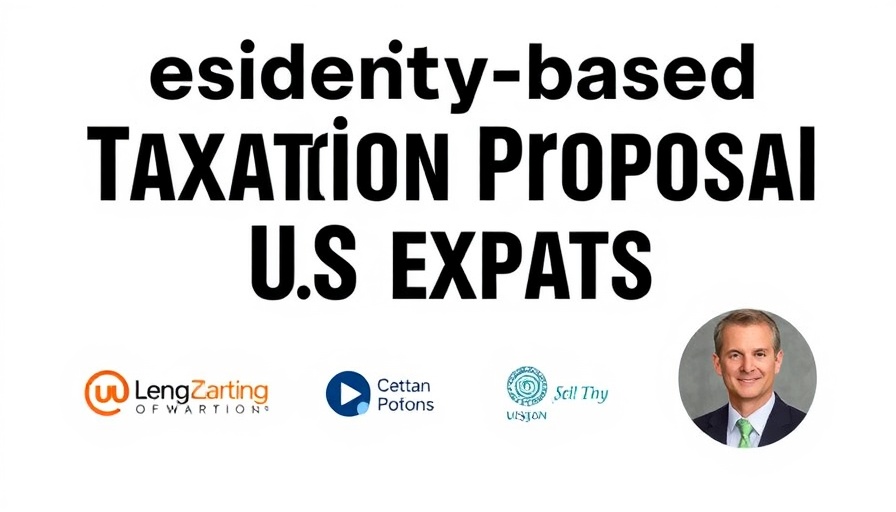
Understanding the Proposed Transition to Residency-Based Taxation
Over nine million Americans live and work outside the U.S., yet they are taxed based on their citizenship—regardless of where they reside. This citizenship-based taxation policy has long been a point of contention for expatriates, prompting discussions about a shift to residency-based taxation (RBT) instead. Under the RBT model, the U.S. would only tax individuals who live within its borders or those earning income from U.S. sources. This proposal aims to alleviate the financial burden placed on expats and encourage U.S. citizens to thrive internationally.
The Challenge of Citizenship-Based Taxation
The current U.S. framework requires citizens, even those residing abroad, to file returns and report their global income—an obligation unique among developed nations. As support for RBT grows, discussions surrounding the benefits and implementation of such a system become more urgent.
A Legislative Push for Change
In December 2024, Congressman Darin LaHood introduced H.R. 10468 — the Residence-Based Taxation for Americans Abroad Act. This legislative proposal stands as the first formal attempt to shift toward RBT, placing it in front of the House Committee on Ways and Means. Advocacy groups like Democrats Abroad and American Citizens Abroad are rallying to build bipartisan support and push this necessary reform forward.
Key Advantages of Residency-Based Taxation
Adopting residency-based taxation could streamline tax filing processes for expatriates significantly. By taxing foreign-source income only when you're residing in the U.S., expats could potentially save thousands on compliance costs and simplify their financial planning. For example:
- Reduced tax filings—no need to report overseas income.
- Simplified compliance requirements, minimizing legal pitfalls.
- Encouraging citizenship retention by removing punitive tax conditions on non-residents.
Addressing Fiscal Concerns
The proposed shift to RBT raises valid questions regarding its fiscal implications. Policymakers have expressed concerns about the potential for significant revenue loss, as RBT would likely decrease the tax burden for many expatriates. However, proponents argue that a well-structured system could offset these losses by attracting more Americans to remain compliant with their tax obligations while living abroad.
Defining Qualified Nonresident Citizens
Under the latest proposal, to qualify for RBT, U.S. citizens would need to demonstrate they are nonresident citizens—essentially meeting criteria that include residing abroad for a majority of the year or proving bona fide residency in a foreign nation. This stipulation would help distinguish between those who genuinely make their homes overseas and those trying to evade U.S. tax responsibilities.
Broader Implications on Global Mobility
If RBT becomes a reality, it could enhance the global mobility of American citizens—thus fueling a more dynamic workforce. Job seekers might find opportunities abroad less daunting without the looming threat of dual taxations, which can deter many from accepting international positions.
Next Steps for Expats
While the fate of H.R. 10468 hangs in the balance, the voices of Americans living abroad are more crucial than ever. Expats are encouraged to stay informed about legislative developments and engage with their representatives to advocate for tax reforms that align with their realities.
In conclusion, the conversation around residency-based taxation is not just a financial issue—it's about leveling the playing field for the millions of Americans abroad. By understanding these proposed changes, expatriates can better navigate their financial futures.
Take Action!
If you’re passionate about this issue, consider reaching out to your local representatives to express your support for residency-based taxation. Voices like yours matter in shaping the way forward for Americans living abroad.
 Add Row
Add Row  Add
Add 




Write A Comment